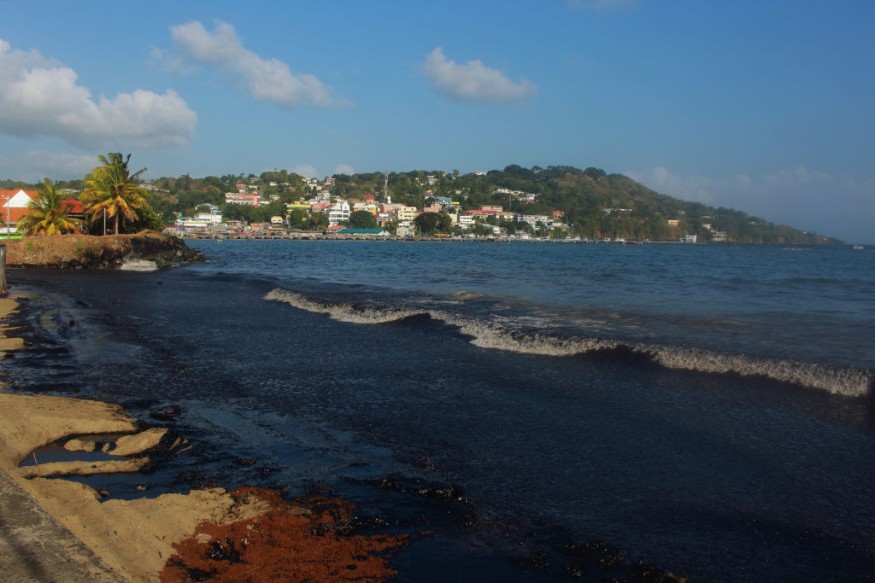Trinidad and Tobago Under National Emergency Following Huge Oil Spill from 'Mystery Ship'

Trinidad and Tobago is mulling over the declaration of a national emergency in response to a substantial oil spill stemming from a ship that ran aground and overturned earlier this week, BBC reports.
The incident has impacted approximately 15km (nine miles) of Tobago's southwestern coastline, including pristine beaches, prompting a massive cleanup effort with the involvement of 1,000 volunteers and government personnel.
The vessel in question, identified as The Gulfstream, capsized on Wednesday near the Cove Eco-Industrial Park in southern Tobago.
Despite the ongoing efforts to contain the Trinidad and Tobago oil spill, environmental officials have reported damage to a reef and Atlantic beaches, posing a threat to the island's vital resorts and hotels, especially during the upcoming Carnival season.
READ NEXT : Ecuador Oil Spill
Potential Escalation to a Level 3 Disaster
Farley Augustine, the chief secretary of Tobago, indicated on Saturday that the government is contemplating elevating the accident to a Level 3 disaster, the highest level, according to the South China Morning Post.
The spill is currently classified as Level 2, signifying the belief that the country can manage the situation without external assistance.
"Everything indicates that we are going in that direction," Augustine said.
A Level 3 designation would imply that local resources are "overwhelmed," necessitating international support to address the crisis effectively.
The magnitude of the Trinidad and Tobago oil spill has heightened concerns about its impact on the environment and the economy, especially given its proximity to the upcoming carnival celebrations, a crucial source of income for the Caribbean island.
Trinidad and Tobago Oil Spill's Emergency Response and Cleanup Operations
The mystery vessel, The Gulfstream, was spotted sailing under an unidentified flag with no distress signals or emergency calls made.
The ship, initially believed to be carrying sand and wood, was abandoned by its crew. The island's Emergency Management Agency confirmed no signs of life on board.
Divers are actively working to isolate and plug the leak from the vessel, while a thousand volunteers dressed in protective gear are tirelessly engaged in cleanup efforts along the affected beaches.
The Coast Guard is intensifying its efforts to contain the oil spill, crucial to mitigating the environmental impact and safeguarding the region's tourism-dependent economy.
Trinidad and Tobago has expressed its readiness to accept assistance from other countries, with Energy Minister Stuart Young from Trinidad pledging support, Barron's noted.
The disaster's unfortunate timing, just before the Carnival season, raises concerns about potential economic losses.
Dave Tancoo, an opposition member of Parliament, noted the probable impact on tour operators, who usually anticipate peak profits during this festive period.
"This opportunity was cruelly taken away from them," Tancoo said, expressing sympathy.
As investigations continue to unravel the ship's origins, ownership, and intended destination, the focus remains on mitigating the environmental repercussions and securing the necessary resources to address this unfolding crisis.
The potential escalation to a Level 3 disaster emphasizes the severity of the situation, demanding a comprehensive and coordinated response to safeguard Trinidad and Tobago's ecological and economic interests.
READ MORE : The Sweet Side of Trinidad and Tobago
This article is owned by Latin Post.
Written by: Bert Hoover
WATCH: Oil spill in Trinidad & Tobago; 10 miles of coastline affected due to oil spillage - From WION
Subscribe to Latin Post!
Sign up for our free newsletter for the Latest coverage!
© 2026 Latin Post. All rights reserved. Do not reproduce without permission.















